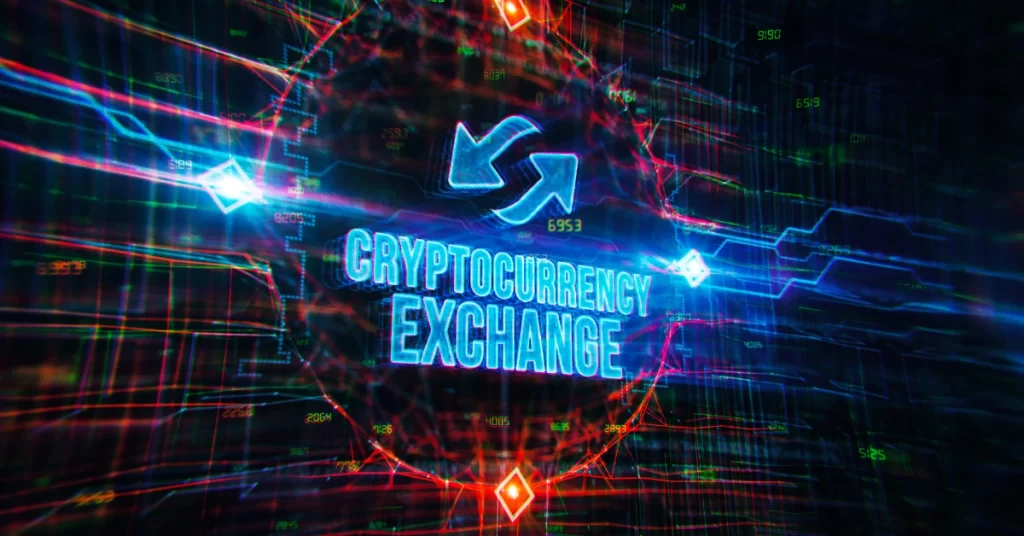
The post How Do You Know If Crypto is Trustworthy? Just Look to the Exchanges Dealing With Them appeared first on Coinpedia Fintech News
The allure of cryptocurrencies has been undeniable in recent years, bringing with it the promise of financial freedom and copious tech innovations. However, this dynamic sector is not without its dark side, particularly when it comes to unregulated projects and exchanges offering little to no protection to their clients. In fact, these platforms have been at the epicenter of several notorious scandals, adversely affecting investor confidence in this space.
In one notable case, the founders of AfriCrypt, Africa’s largest cryptocurrency exchange, vanished with an alleged $3.6 billion after a purported large-scale hack. Another instance occurred in 2017 when South Korean authorities exposed BitKRX, a fraudulent exchange masquerading as a branch of the reputable Korea Exchange (KRX). These incidents shook the world and underscored the inherent risks of unregulated crypto platforms
The risks of non-regulated platforms extend beyond these high-profile scandals. Poor anti-money laundering (AML) and fraud practices are also rampant in the crypto exchange market. Additionally, the limited understanding between financial compliance professionals and crypto operators often leads to an unintentional overlooking of financial crime trends.
Vigilance in a Volatile World
The core of several major scandals that have rocked the crypto industry in recent years, including the ones mentioned above, can be traced back to unregulated, non-KYC platforms, where there is a glaring absence of incentivization for the core teams to prioritize customer protection. These platforms often lack the fundamental structures to prevent malpractices, leaving users vulnerable to scams.
In contrast, the most reliable and trustworthy platforms in the crypto sphere are those diligently working towards establishing rigorous regulations, ensuring transparency, and actively safeguarding their communities. These platforms understand that in the decentralized and often opaque world of cryptocurrency, trust, and security are paramount, and they strive to provide these through a commitment to regulatory compliance and user protection.
The MultiBank Group is an exemplar of this strategy. Regulated by over 10 financial regulators across 5 continents, including ASIC, AUSTRAC, CIMA, BaFIN, and holding 13 global licenses, Multibank operates from 25 global offices, serving more than 1,000,000 active customers, and boasts an average daily trading volume of $12.1 billion.
Also, being recognized as the world’s most regulated derivatives broker, MultiBank Group has recently ventured into the crypto sphere with MultiBank.io, a cryptocurrency exchange offering a wide array of trading pairs (including popular cryptos like Bitcoin, Ethereum, Bitcoin Cash, Dogecoin, and others) while delivering faster, cheaper, and more secure transaction options as compared to traditional financial methods.
Most recently, the platform announced the launch of its innovative “Panic Sell” feature, which allows traders to quickly convert their existing positions into a specific crypto/fiat currency with the touch of a button. Once done, these funds can be wired out to their bank accounts seamlessly.
Building Bridges
As crypto moves beyond its niche origins, traditional financial institutions are increasingly embracing the technology with open arms. For example, over the last couple of years, a host of mainstream banking entities such as Deutsche Bank, Standard Chartered, BNY Mellon, and Societe Generale have entered the crypto fray by offering their clients custody services. Similarly, other large players like JPMorgan Chase, Goldman Sachs, and Bank of America have also launched their own crypto trading desks.
From the outside looking in, this intersection seems to largely be driven by customer demand for superior, easy-to-use digital financial services. In response, crypto companies, too, are actively adapting to engage less tech-savvy customers, while Trad-Fi institutions are adopting more innovative, startup-like approaches. Looking ahead, it will be interesting to see how these two seemingly disparate sectors continue to intersect with one another.

 1 year ago
81
1 year ago
81














 English (US) ·
English (US) ·